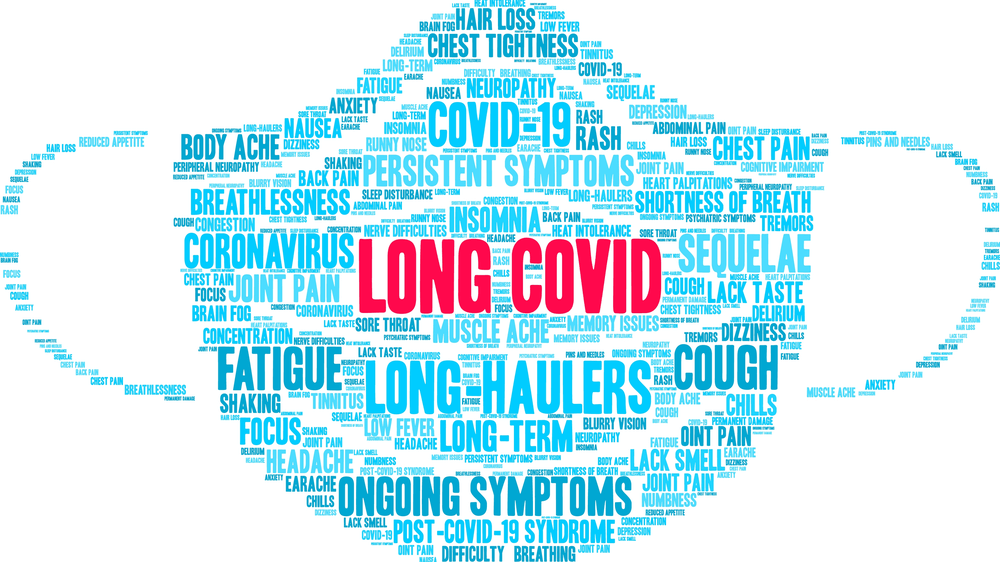Is Long COVID Leading to a Tipping Point in Attitudes Toward Chronic Illness?
Could long COVID spell the end of medical gaslighting? Let’s hope so.
When Kathy Flaherty, a 53-year-old attorney and nonprofit executive director, got COVID-19 in March 2020, her friends said, “see you in two weeks.”
Two weeks came and went, but she was no better. A former marathon runner, she could only take a walk around her backyard before she was exhausted and had to lie down and rest.
To Flaherty’s surprise and dismay, her doctor suggested that the problem might be psychological rather than physical.
“It was so disempowering and painful,” she said. “She’s known me for decades.”
Now, a year later, Flaherty is doing better, but is still struggling. She’s cut back to half time at work and is getting disability for the other half. She’s also learned she has to say “no” to many things—something that, as a lifetime go-getter, she never did before.
Wilhemina Jenkins, 73, has much the same story. Like many COVID-19 long haulers, she found herself unable to function after the initial symptoms of her virus were resolved.
She tried to make herself do things, only to be back in bed for days afterwards. She was working on a Ph.D. in physics but was unable to complete it because, as she put it, “my ability to think went out the window.”
The difference is that Jenkins, who is African American, got sick in 1983. Back then, the problem was dubbed “chronic fatigue syndrome.” It was mocked by late night hosts and comedians, and called the “yuppie disease” in the mistaken notion that it only affected upper middle class white women. Jenkins struggled to get a diagnosis because as an African American she didn’t fit this stereotype.
It’s now known as myalgic encephalomyelitis/chronic fatigue syndrome (ME/CFS). For decades, most doctors treated it as psychiatric. An entire pseudoscience grew up around it, that combined cognitive behavioral therapy with something called “graded exercise therapy.”
In recent years, it’s gotten some respect—though many doctors still believe it’s at least partly psychosomatic. Research into the illness has been thin on the ground.
All that might be about to change.
The symptoms of long COVID and ME/CFS are pretty much identical. They include being exhausted after minor bouts of activity, cognitive problems such as brain fog and memory issues, breathing issues, and neurological symptoms, among others.
With the pandemic sweeping through the population, the number with long COVID has mushroomed. While it’s difficult to pinpoint exactly how many people have it, studies so far suggest it could be anywhere from 10-30% of those infected.
“We saw this coming a mile away,” said Jenkins, who’s been a patient advocate for those with ME/CFS since her official diagnosis in 1988. “We knew this was going to happen because it’s a post-viral deal.”
Many who have long COVID are young and had mild or moderate cases that didn’t require hospitalization. Even children are getting it. With over 30 million cases of COVID-19 in the US alone, that could mean millions of people are struggling to manage their lives.
“I think we’re at a tipping point,” said Jaime Seltzer, Director of Scientific and Medical Outreach at #ME Action, an international advocacy organization. “To say that all of these people are just imagining the exact same symptoms is not working. The psychosomatic approach has reached a crossroads.”
If so, this could represent a sea change in how medicine deals with complex chronic illnesses of all kinds. For decades, the rule of thumb was that if a patient’s symptoms didn’t fit the known boxes, chances were they were creating at least some of them with their minds—in other words, it was psychosomatic.
This wrongheaded view may be kicked to the curb thanks to long COVID. In other words, medical gaslighting could be on its way out—something many chronic illness patients (myself included) think is long overdue.
The nation’s top doctors agree that long COVID is real and needs to be better understood. White House Chief Medical Advisor Dr. Anthony Fauci has spoken about it, and there’s a page devoted to it on the CDC website.
Perhaps most significant, the National Institutes of Health (NIH) recently announced $1.15 billion in research dollars to be poured into studying long COVID. Because post-viral illnesses all tend to look the same, this research will shed light on others like it, including ME/CFS.
This has Seltzer hopeful. ME/CFS research has never had this kind of cash infusion. More research will provide the kinds of answers that its sufferers have been waiting for decades to get.
The fact is, patients with difficult or complicated conditions deserve better than what we’ve been getting. Too many of us have been subjected to the medical trauma of being told our problem is all in our heads.
Here’s hoping the bright spot in this pandemic is that medicine wakes up to its prejudices and makes lasting changes as a result. It’s high time it did.
About Rooted In Rights
Rooted in Rights exists to amplify the perspectives of the disability community. Blog posts and storyteller videos that we publish and content we re-share on social media do not necessarily reflect the opinions or values of Rooted in Rights nor indicate an endorsement of a program or service by Rooted in Rights. We respect and aim to reflect the diversity of opinions and experiences of the disability community. Rooted in Rights seeks to highlight discussions, not direct them. Learn more about Rooted In Rights



